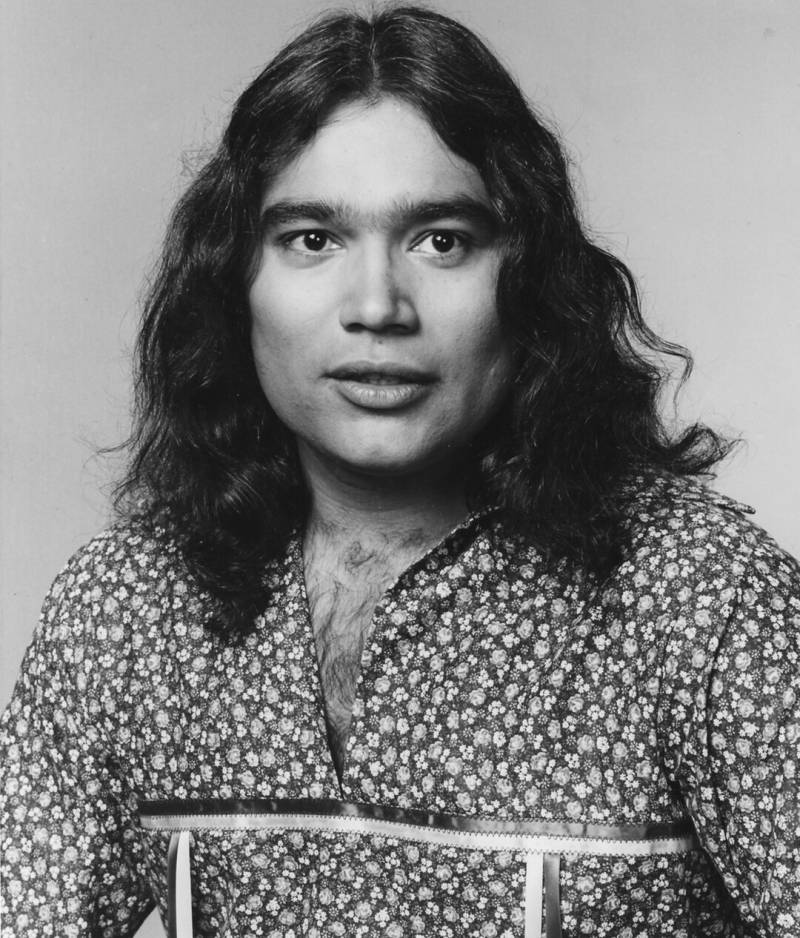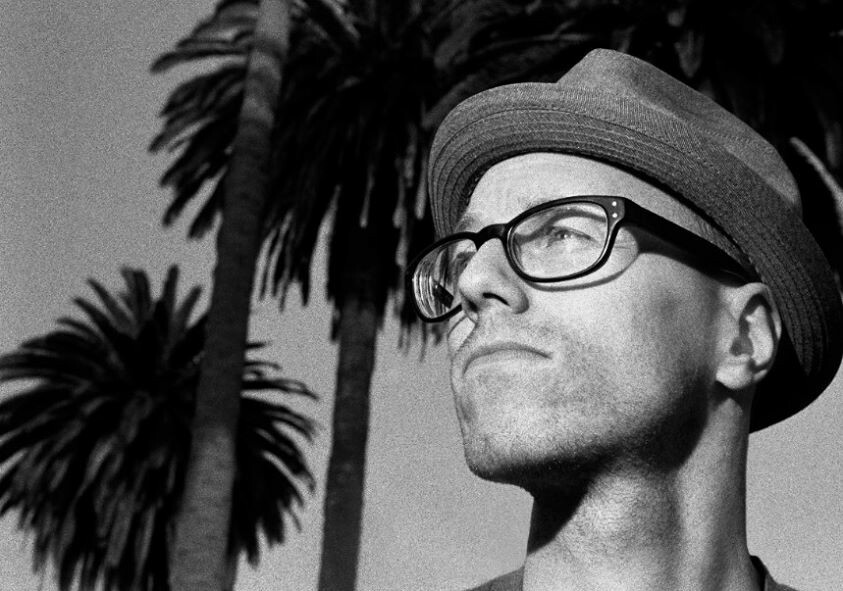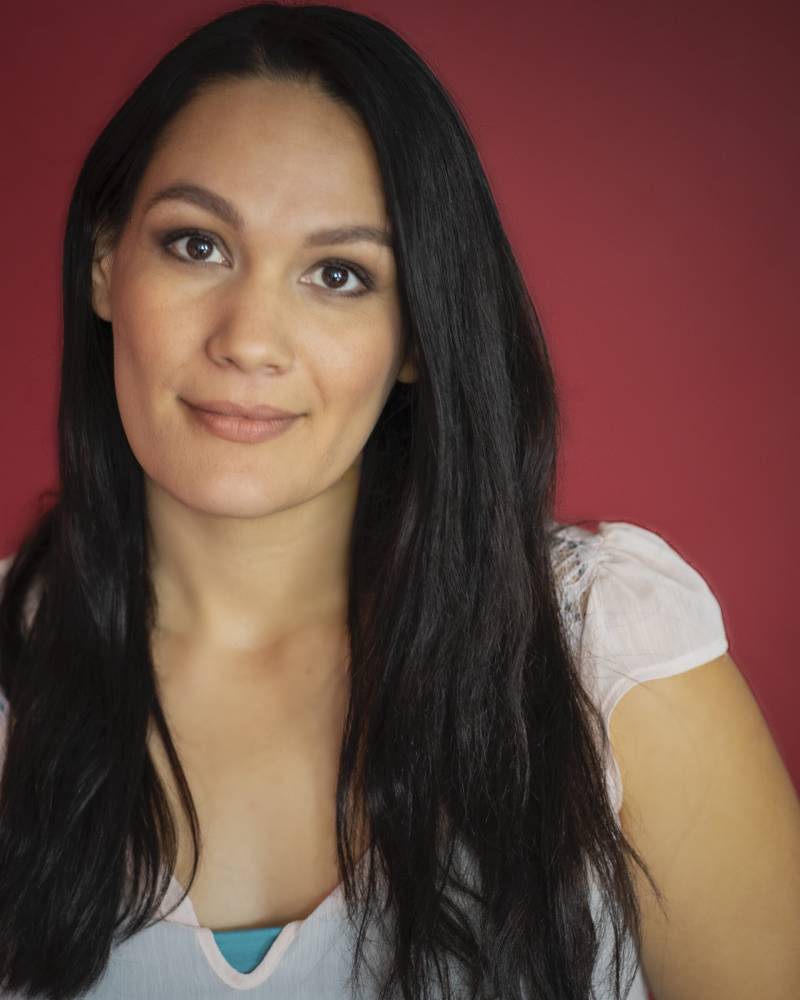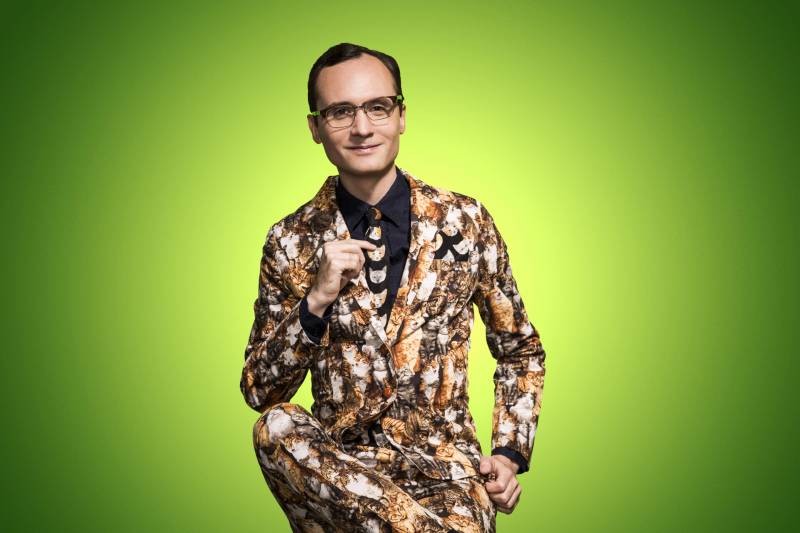Author Kliph Nesteroff has written about comedy for years. His new book, "We Had a Little Real Estate Problem," takes a look at Native American comedians — a community that's been misunderstood, stereotyped and often erased in Hollywood.
The book's title is the punchline of a famous joke from pioneering Native American stand-up comedian, Charlie Hill, a member of the Oneida Nation of Wisconsin.
"That was the crux of his joke," says Nesteroff. "'My people are from Wisconsin. We used to be from New York, but we had a little real estate problem.'"
In the mid-1970s, Hill was hot on the Los Angeles stand-up circuit. He worked clubs on the Sunset Strip along with Jay Leno, David Letterman and Jimmy Walker. He also appeared on "The Tonight Show Starring Johnny Carson," the ultimate anointment for a comic during that period.
Hill's act tackled the absurd stereotype that Native Americans aren’t funny.

"You know, a lot of you white people never seen an Indian do stand-up comedy before," said Hill in a 1977 appearance on the Richard Pryor Show. "Like, for so long you probably thought Indians never had a sense of humor. We never thought you were too funny either."
Hill died in 2013, without ever reaching stardom and still doing his real estate joke. But his unique stature in the comedy world of four decades ago shows young Native comics and writers that taking their skills to Hollywood is not impossible. To this day, he’s still the only Native American comic to have made it to "The Tonight Show."
Though Nesteroff’s book is named for Hill’s signature joke, the subtitle is no punchline: The Unheralded Story of Native Americans & Comedy. Nesteroff says the stereotype of the stoic Native American was a dehumanizing tactic.
"It helped to justify federal policy that subjugated Native Americans," he says. "They're unsmiling. They're unfeeling. And if somebody doesn't have feelings, it doesn't matter what you do to them."
Nesteroff’s past work is meticulous and deeply researched, but this book came with a particular challenge.
"It's a very delicate situation being a non-Native author, diving into the realm of Indigenous studies of any kind," he says. "There's a long history and a huge stigma of racist anthropology, of racist historians studying Native Americans like they’re an amoeba under a microscope. What I really tried to do was to let people speak for themselves."

(Jim Herrington)
One of those people is comedian and writer Joey Clift.
"There's definitely a stereotype of the stoic Indian who's best friends with an eagle, and flute music plays whenever they're pontificating about whatever," says Clift. "That's just not reality. Some of us are stoic. Some of us are also real funny."
Clift is a member of the Cowlitz Tribe and was raised on the Tulalip reservation just north of Seattle. He says the misconceptions about Native Americans aren’t confined to simply determining who’s funny or not.
"I've had grown adults who went to college, live in Los Angeles, work in comedy—ask me if I was born in a teepee, if my reservation had electricity growing up," says Clift.
Clift is quick to point out that he was born in a hospital, and he grew up with not only electricity, but with a television set. He spent hours in front of it, soaking up "The Simpsons," "Family Guy" and "Late Night with Conan O’Brien." He saw his future in those shows, but how to make it happen — that was the problem.
"Because I didn't necessarily see any Native American comedians on TV growing up, I didn't think I was allowed to work in comedy," he says. "So, instead I went to school for what to me was the next best thing, which was to be a small market TV weather guy."
That’s exactly what he became, but it wasn’t enough. In 2010, at the urging of his college professors, Clift decided to take a stab at a life beyond predicting sunny skies.
"When I moved to LA, one of the first things that I did was just Google Native American TV writers or Native American comedians and see if anything came up."
It did and Clift ended up at a Writers Guild diversity event that changed his life.
"There was one Native American writer on the panel," Clift recalls. "And he very quickly introduced me to Native Hollywood, the loose collection of Native people working in the entertainment industry."
Clift started doing stand-up in L.A. clubs. In 2018, he created the annual Native American Comedy Showcase for the Hollywood sketch comedy group Upright Citizens Brigade.
He’s currently writing for the animated Netflix series "Spirit Rangers," created by Native American showrunner Karissa Valencia. The show’s entirely Native American writing staff is a Hollywood first.
"Because I’ve been featured in this book, there are a lot of younger, up-and-coming Native comedians who have reached out to me and said, 'Hey, I read your chapter in Kliph’s book, it really resonated with me. We should do a Zoom and talk. And can you give me any advice?' says Clift. "I think that it's a really good Bat-Signal for Native comedy, letting Native comedians know that we exist."
But Native Americans getting a legitimate foothold in show business — on and offscreen — is still new.
There's a history of casting non-Native actors in native roles in Hollywood. Anthony Quinn, Charles Bronson, Burt Lancaster, Rock Hudson, Audrey Hepburn, Johnny Depp, Burt Reynolds, Boris Karloff and Elvis Presley all portrayed Native Americans.
You might also recognize the late actor Iron Eyes Cody from the character he played known as "the Crying Indian" from a famous 1970s public service announcement on littering. He had a tear running down his cheek as he witnessed America being consumed by garbage.
In real life, Cody was an Italian American named Espera de Corti, who made a career wearing an eagle feather headdress. He posed as a Native in over 100 films, and maintained that identity offscreen, too.
For the better part of a century, Hollywood has gone out of its way to not only exclude Native Americans from serious acting roles, but to create and perpetuate negative stereotypes.
"Westerns were among the first movies ever made," Nesteroff says. "And by the year 1911, a contingent of Indigenous leaders were already registering formal complaints with the White House saying, 'Can you do something to stop the spread of racist misinformation appearing in silent movies?'"
Those requests went ignored.

(Matthew Williamson)
"The stoic Indian is my favorite stereotype because there's nothing further from the truth," says comic Adrianne Chalepah. She’s featured in Nesteroff’s book, and grew up on the Kiowa-Comanche-Apache Reservation in Oklahoma. As a kid, her father turned her on to Monty Python, Cheech & Chong and Mel Brooks.
"I grew up in a very humorous family," she says. "You can't go five minutes without someone making fun of someone. You know, culture’s cool, language is cool, tribal stuff is all cool, but humor is the foundation. That is what keeps us just thriving. Because without that humor? Man, you know, things get really dark."
After college, she was working a straight job at a bank when she finally decided to try stand-up in her early twenties.
"It was a huge risk because I was actually about six months pregnant with my second child," says the mother of four. "But the way that I looked at it is, it can't be any worse than what I've already been through. Because I grew up in so much poverty that, worst case scenario, I would tuck my tail between my legs and go live with my mom in a trailer park."
That didn’t happen. Chalepah moved to Albuquerque, maneuvering her comedy career around her young sons.
She gigged at tribal communities all over the country, from nighttime outdoor shows lit by car headlights to reservation casino stages. Pre-coronavirus, she was averaging four jobs a month.
"I chased every stage, every opportunity. I had no ego and no pride in the matter. If they were like, 'Okay, you get five minutes in front of people who hate you,' I would've been like, great, I'll be there."
But, unlike Joey Clift, who came to Hollywood to carve out a career, Chalepah stayed away from the belly of the beast.
My opinion of the industry is that it is elitist because it's a pay-to-play thing," she explains. "You’ve got to pay for training. You’ve got to pay for headshots. You’ve got to pay to live in LA. It's expensive. And then what ends up happening is you exclude middle America, and specifically the Natives on reservations get completely excluded because the idea is, 'No, you have to come to us.'"
As the pandemic drags on, Chalepah is taking care of her kids and focusing on acting. The stand-up gigs are dead on the vine.
It’s still a struggle for Natives in Hollywood, but she says Nesteroff’s book is a positive step.
"Really, my hope is that it will just open doors to more comedians, or at least let industry folks know that we're not a relic or we're not an antique. We have iPhones. We're not stoic."
